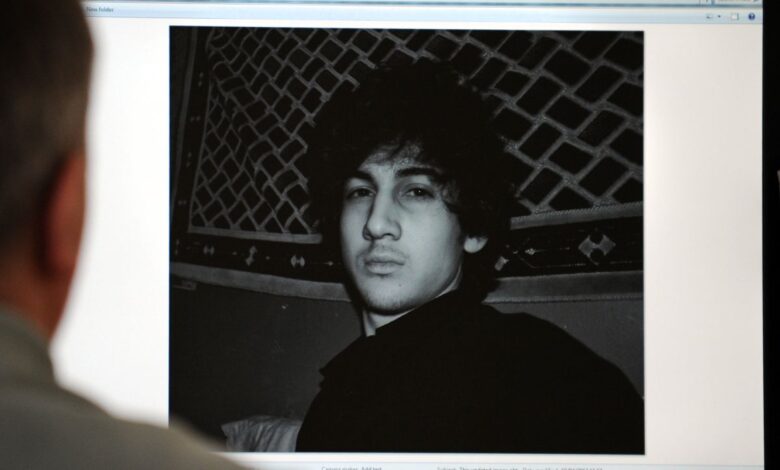Death penalty: Supreme Court considers case of Boston Marathon attacker


Eight years after 2013 Boston Marathon bombing, which killed three bystanders and a police officer and injured more than 250 people, the Supreme court seemed ready Wednesday to reestablish death sentence of Dzhokhar Tsarnaev, one of the two brothers involved in the attack.
The judges of the Supreme court heard arguments on Wednesday about whether the death penalty was incorrectly annulled for one of the attackers of the Boston Marathon, and focused most of their questions on the decision of the trial judge to exclude evidence about the possible participation of the other attacker, in other previous crimes.
On April 15, 2013, Dzhokhar Tsarnaev and his brother Tamerlan Tsarnaev detonated two bombs near the finish line of the annual Boston Marathon, killing three people and injuring approximately 264 more. Tamerlan Tsarnaev was shot several times during his arrest, hit his brother’s car and later died.
Dzhokhar Tsarnaev He was convicted of 30 crimes, including three counts of using a weapon of mass destruction resulting in death. He was sentenced to death for six crimes and the judge also imposed 20 life sentences..
Dzhokhar Tsarnaev appealed the sentencing decision. In July 2020, the U.S. 1st Circuit Court of Appeals upheld 27 of their convictions, reversed three, annulled his death sentence and ordered that Dzhokhar Tsarnaev will continue to serve a life sentence until a new trial is held in the penalty phase.
The appeals court annulled the death warrant for two reasons: that the trial judge should have asked potential jurors for details about their consumption of news about the case before the trial and that during the sanction phase and that the trial judge should not have excluded evidence that their brother Tamerlan Tsaraev he was allegedly involved in a triple homicide two years before the attack.
The 1st Circuit decision said that “the omitted evidence could have at least tipped a juror’s decision scale away from death.”
During the trial, the attorneys for Dzhokhar Tsarnaev argued that his brother acted as a “radical catalyst” that influenced Dzhokhar Tsarnaev to participate in the attacks. The government said the brothers were equally guilty.
During Wednesday’s hearing, the judges focused most of their questions on why the connection of Tamerlan Tsarnaev With the previous triple homicide it was not allowed as evidence during the trial and whether or not this mattered in the imposition of the death penalty for his brother.
Conservative Thursdays at the Supreme court they suggested that the evidence was unreliable and should not have been presented to the jury.
But the three liberal judges said that this evidence belonged to the axis of the argument in favor of Dzhokhar Tsarnaev: that he should not receive the death penalty, because it was his brother who took the initiative in carrying out the attack.
Ginger Anders, lawyer of Dzhokhar Tsarnaev, argued that the inclusion of this evidence was essential to the defense case. “The theory is that Tamerlan influenced Dzhokhar. The theory is that Tamerlan indoctrinated Dzhokhar and Dzhokhar became radicalized because of Tamerlan and Tamerlan was more likely to lead the bombings, ”Anders said.
It is not clear whether, even if the death penalty of Tsarnaev, he would actually be executed.
In July, Attorney General Merrick Garland imposed a moratorium on federal executions while the Department of Justice reviews policies and procedures.
.



